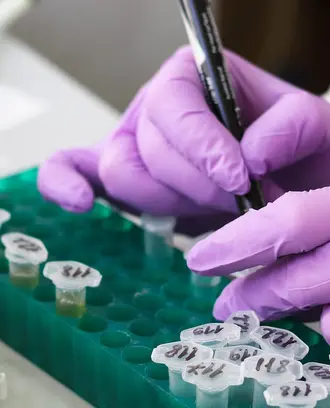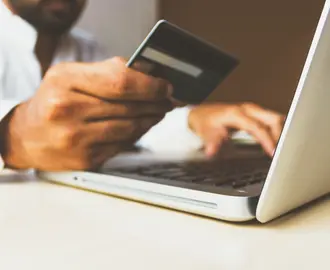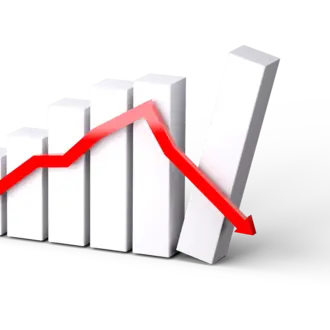Economy
It is time to build a new economy. Digital data and artificial intelligence can help
The COVID-19 pandemic and ensuing economic crisis have revealed many ways in which American society isn’t working. We have a fragile and reactive healthcare system; an opaque, winner-takes-all economy; and a government that few people trust. These problems have been around for a long time, of course, but the current health emergency has brought them into sharper focus.
Alex 'Sandy' Pentland is the Toshiba Professor of Media Arts & Science at the MIT Media Lab and Sloan School of Management. He is also director of MIT’s Connection Science Program. He is a co-editor of the forthcoming book, 'Building the New Economy.'
So we have entered the third full month of the pandemic here in the U.S., the question we should be asking ourselves isn’t when will society and the economy get back to normal; but instead, how can we regain control over our lives to build a better economy?
It is time to refresh our ideas about the ways that our society is organized and rebalance the relationships between citizens and communities and those in power. It is time to reinvent our financial systems and infrastructure to ensure that benefits are spread widely—rather than concentrated at the top. It is time to incorporate new solutions to create more robust civic institutions that work for all of us. In short, it is time to build a new economy.
The rise of pervasive digital data and artificial intelligence (AI) hold great promise to help us shape and strengthen this new economy. New digital systems are already being applied to fight COVID-19, and a variety of technologies, from videoconferencing to infection modeling, have been strong allies.
It is not perfect, however. Some digital technologies, including social media, have contributed to disinformation and increased confusion. Similarly, mobile phone applications being used to track infection threaten to alter the balance between public safety and personal privacy. There are also questions about who controls the data and what it is being used for.
These issues underscore the need to reimagine the ways data and AI are deployed in societies’ civic organizations and government systems. Our current structures are a creaky, siloed patchwork which prevents data sharing. They are often ad-hoc and lacking in transparency. No wonder they work so unevenly and respond to emergencies so poorly.
Improving their resiliency does not require a new institution or law, or even a new administration. Rather, it entails local institutions and communities building diverse coalitions and using data to learn and adapt.
Take, for instance, medical data sharing. With a coronavirus vaccine still months, and perhaps even years, into the future, data sharing could help scientists determine the which drug cocktails and combinations have the best results in fighting the disease. Why doesn’t medical data distribution infrastructure exist already in the U.S.? Why isn’t there national coordination between hospitals so that healthcare workers know which off-label treatments are being tried outside of formal drug trials, and how they are working?
In the last few decades, informal networks of doctors sharing data about AIDS and infant care have improved medicine in those areas, reducing death rates by an order of magnitude. It wasn’t the World Health Organization or the U.S. National Institutes of Health that accomplished this miracle, although they helped support experiments and implemented improvements. Instead these innovations came from local communities of health personnel working on new ideas and learning from each other.
Similarly, today we see informal networks of scientists making great strides at designing and testing new treatments for COVID-19. But again, it’s not NIH programs or the WHO that are driving this surge of innovation. True, these large organizations have contributed the scientific infrastructure and some of channels for information sharing, but it’s individual labs that are experimenting and swapping information and insights with each other. These community networks are already improving clinical outcomes. COVID-19 patients at hospitals that are keeping track of best practice treatment and sharing information are faring better.
We are also seeing signs of that same spirit of bottom-up resilience in local governments fighting to combat the human suffering caused by the pandemic. Networks of cities have set up innovation networks, where local municipalities experiment with different programs and policies to help the unemployed, the homeless, failing small businesses, and suffering families. By sharing data about the results of their communities’ tests and trials, the best ideas are able to spread quickly to other cities, without nationwide programs or regulations. For instance, an informal alliance of “tech cities,” including Boston, New York, and San Francisco, are sharing best practices in creating mobile phone apps to help metropolises more quickly identify problems and more creatively solve problems.
To be sure, there are legitimate worries surrounding digital data. Today, AI and digital data are controlled by a few big companies and privileged authorities. This raises concerns about who owns the data, and how AI is being used to parse it.
And yet we should have hope because of the trend of local researchers, entrepreneurs, and citizen groups taking control of their data, using AI and other digital technologies to better solve local problems, and then freely sharing their insights with other communities. These learning networks are creating new paths for innovations that will help our society to survive and come out stronger.
Alex 'Sandy' Pentland is the Toshiba Professor of Media Arts & Science at the MIT Media Lab and Sloan School of Management. He is alsodirector of MIT’s Connection Science Program. He is a co-editor of the forthcoming book, Building the New Economy.



